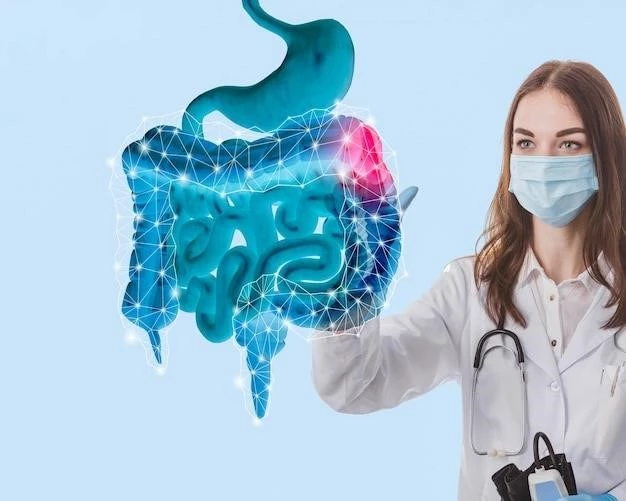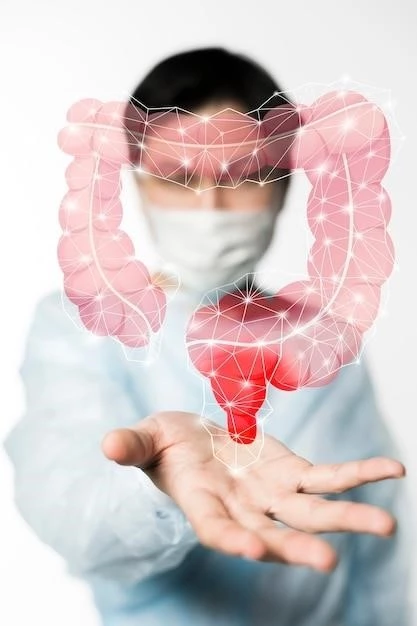Symptoms of Crohn’s Disease in the Esophagus
Difficulty Swallowing
Difficulty swallowing, known as dysphagia, can be a symptom of Crohn’s disease in the esophagus. If you experience persistent difficulty swallowing, it is crucial to consult with a healthcare provider for proper evaluation and management. Difficulty swallowing may indicate inflammation or strictures in the esophagus, which require appropriate treatment to improve your quality of life.
Persistent Chest Pain
If you are experiencing persistent chest pain in the context of Crohn’s disease in the esophagus, it is essential to seek medical attention promptly. Chest pain can be a sign of inflammation or complications that need to be addressed by healthcare professionals. Ignoring persistent chest pain can lead to further health issues, so do not hesitate to discuss this symptom with your healthcare provider for appropriate diagnosis and treatment.
Heartburn and Acid Reflux
Heartburn and acid reflux are common symptoms of Crohn’s disease in the esophagus. It is important to manage these symptoms effectively to improve your quality of life. Avoid trigger foods that exacerbate heartburn, such as spicy or acidic foods. Consider elevating your head while sleeping and eating smaller, more frequent meals. If heartburn and acid reflux persist, consult with a healthcare provider for appropriate treatment options.
Treatment Options for Crohn’s Disease of the Esophagus
Medications to Reduce Inflammation
Medications to reduce inflammation are vital in managing Crohn’s disease of the esophagus. Your healthcare provider may prescribe corticosteroids, aminosalicylates, or immunomodulators to help control inflammation. It is essential to follow your treatment plan diligently and attend regular follow-up appointments to monitor your progress. Always communicate any concerns or side effects to your healthcare team for optimal management of your condition.
Immune System Suppressors
Immune system suppressors play a crucial role in managing Crohn’s disease of the esophagus by modulating the immune response that triggers inflammation. Medications such as azathioprine, methotrexate, or biologic therapies target specific pathways in the immune system to reduce symptoms. It is essential to adhere to your prescribed treatment regimen and attend regular check-ups to monitor your response to immune system suppressors and adjust your treatment plan accordingly.
Biologic Therapies
Biologic therapies are advanced treatment options for managing Crohn’s disease of the esophagus. These medications target specific proteins in the immune system to reduce inflammation and control symptoms. Discuss with your healthcare provider if biologics like infliximab, adalimumab, or vedolizumab are suitable for your condition. Regular monitoring and open communication with your healthcare team are essential to optimize the effectiveness of biologic therapies in managing your Crohn’s disease.
Risk Factors Associated with Crohn’s Disease in the Esophagus
Genetic Predisposition
Genetic predisposition plays a significant role in the development of Crohn’s disease in the esophagus. If you have a family history of inflammatory bowel disease, you may be at an increased risk. Understanding your genetic risk factors can help healthcare providers tailor a personalized treatment plan for you. It is important to inform your medical team about your family history to ensure appropriate monitoring and management of Crohn’s disease in the esophagus.
Smoking
Smoking is a significant risk factor for Crohn’s disease in the esophagus. If you smoke, it is essential to quit to reduce the severity of symptoms and complications. Smoking can exacerbate inflammation and increase the risk of flare-ups. Seek support from healthcare professionals or cessation programs to effectively quit smoking. By quitting, you can positively impact the progression and management of Crohn’s disease in the esophagus.
Autoimmune Disorders
Having other autoimmune disorders can increase the risk of developing Crohn’s disease in the esophagus. Conditions like rheumatoid arthritis or lupus may be associated with a higher likelihood of esophageal involvement in Crohn’s disease. It is crucial to inform your healthcare provider about any other autoimmune conditions you have to ensure comprehensive management of your health. Monitoring and treating autoimmune disorders can help in managing Crohn’s disease of the esophagus effectively.
Diagnosing Crohn’s Disease of the Esophagus
Endoscopy and Biopsy
Endoscopy and biopsy are essential procedures for diagnosing Crohn’s disease in the esophagus. During an endoscopy, a flexible tube with a camera is inserted to visualize the esophagus. Biopsies may be taken to analyze tissue samples for signs of inflammation or damage. These tests provide valuable information for healthcare providers to confirm the presence of Crohn’s disease in the esophagus and determine the extent of the condition for appropriate treatment planning.
Imaging Tests
Imaging tests play a crucial role in diagnosing Crohn’s disease in the esophagus. Procedures like X-rays, CT scans, or MRIs help visualize the esophagus and surrounding tissues to identify inflammation, strictures, or complications. These tests provide detailed images that aid healthcare providers in confirming the presence of Crohn’s disease and assessing the extent of involvement. Follow your healthcare provider’s recommendations for imaging tests to support an accurate diagnosis and personalized treatment plan.
Blood Tests
Blood tests are essential in diagnosing Crohn’s disease in the esophagus. Your healthcare provider may order blood tests to check for markers of inflammation, anemia, or nutritional deficiencies. Elevated inflammatory markers like C-reactive protein or fecal calprotectin can indicate active disease. Blood tests also help assess overall health and guide treatment decisions. Ensure to follow up with your healthcare provider for a thorough evaluation and interpretation of blood test results for effective management of Crohn’s disease in the esophagus.
Lifestyle Changes to Manage Crohn’s Disease in the Esophagus
Stress Management Techniques
Stress management is vital in managing Crohn’s disease in the esophagus. Practice relaxation techniques like deep breathing, meditation, or yoga to reduce stress levels. Engage in activities you enjoy, prioritize self-care, and seek support from loved ones. Chronic stress can exacerbate symptoms, so developing effective stress management strategies is key. Consult with a healthcare provider or therapist for additional guidance on managing stress to improve your overall well-being.
Regular Exercise
Incorporating regular exercise into your routine is beneficial for managing Crohn’s disease in the esophagus. Choose low-impact activities like walking, swimming, or yoga to stay active. Exercise can alleviate stress, improve digestion, and enhance overall well-being. Consult with a healthcare provider or a fitness expert to create a tailored exercise plan that suits your abilities and health needs. Consistent physical activity can help support your health while managing Crohn’s disease symptoms.
Adequate Sleep
Prioritizing adequate sleep is crucial for managing Crohn’s disease in the esophagus. Aim for 7-9 hours of quality sleep each night to support your immune system and overall health. Create a relaxing bedtime routine, maintain a comfortable sleep environment, and limit screen time before bed. Adequate rest can help reduce inflammation, boost energy levels, and improve your body’s healing processes. Consult your healthcare provider if you experience sleep disturbances for personalized recommendations to enhance your sleep quality.
Surgical Interventions for Severe Cases of Crohn’s Disease in the Esophagus
Strictureplasty
Strictureplasty is a surgical procedure used in severe cases of Crohn’s disease in the esophagus to widen narrowed areas without removing them. This procedure can help alleviate symptoms of strictures, improve swallowing, and prevent blockages. It is important to discuss the potential benefits and risks of strictureplasty with a healthcare provider to determine if it is the right treatment option for your condition.
Resection Surgery
Resection surgery may be necessary for severe cases of Crohn’s disease in the esophagus where damaged sections are removed. This surgical intervention aims to improve symptoms, reduce inflammation, and enhance quality of life. Discuss with your healthcare provider about the benefits, potential risks, and recovery process associated with resection surgery. It is essential to have a clear understanding of the procedure and post-operative care to make informed decisions about your treatment.
Colectomy
In severe cases of Crohn’s disease in the esophagus, a colectomy may be considered to remove part or all of the colon. This surgical intervention is aimed at improving symptoms and quality of life for individuals with extensive disease involvement. A colectomy may also be recommended if other treatments have not been effective. Prior to undergoing a colectomy, it is essential to have a thorough discussion with your healthcare provider to understand the procedure, potential outcomes, and post-operative care requirements.

Dietary Recommendations for Individuals with Crohn’s Disease of the Esophagus
Low-Fiber Diet
Following a low-fiber diet is beneficial for managing Crohn’s disease in the esophagus. Limiting high-fiber foods like whole grains, nuts, seeds, and raw fruits or vegetables can help reduce digestive discomfort. Opt for well-cooked, peeled, or canned fruits and vegetables, refined grains, and lean proteins. Be mindful of fiber intake to minimize intestinal irritation and promote easier digestion. Consult with a dietitian to create a personalized low-fiber meal plan that meets your nutritional needs.
Elimination of Trigger Foods
Identifying and avoiding trigger foods is essential for managing Crohn’s disease in the esophagus. Common triggers include spicy foods, dairy, caffeine, and high-fat items. Keep a food diary to track how different foods affect your symptoms and consider working with a dietitian to create an elimination plan. By eliminating trigger foods, you can reduce inflammation, alleviate discomfort, and support better digestive health. Prioritize a diet tailored to your individual needs for optimal symptom management.
Nutrient-Rich Foods
Incorporating nutrient-rich foods into your diet is crucial for managing Crohn’s disease in the esophagus. Opt for foods high in vitamins, minerals, and antioxidants such as lean proteins, fish, fruits, vegetables, and whole grains. These foods can help support your immune system, promote healing, and provide essential nutrients for overall health. Consider working with a dietitian to ensure you are meeting your nutritional needs and maintaining a well-balanced diet to support your well-being while managing Crohn’s disease.
Research Advances in Understanding Crohn’s Disease of the Esophagus
Microbiome Studies
Ongoing microbiome studies are shedding light on the role of gut bacteria in Crohn’s disease of the esophagus. Understanding the microbiome’s impact on inflammation and disease development can lead to innovative treatments. Stay informed about research findings and discuss potential microbiome-focused therapies with your healthcare provider for personalized management of your condition. Embracing advancements in microbiome research may offer new insights and treatment options for Crohn’s disease in the esophagus.
Immunotherapy Developments
Exciting immunotherapy developments are offering new approaches for managing Crohn’s disease in the esophagus. Immunotherapy aims to modulate the immune response to reduce inflammation and symptoms. Stay informed about evolving immunotherapy options through discussions with your healthcare provider and clinical trials participation. Emerging treatments hold promise in providing more targeted and effective therapies for individuals with Crohn’s disease. Explore the potential of immunotherapy advancements in enhancing your treatment plan and improving your quality of life.
Personalized Medicine Approaches
Personalized medicine approaches are revolutionizing the treatment of Crohn’s disease in the esophagus. Tailored to individual characteristics and genetic makeup, personalized therapies aim to optimize treatment outcomes and minimize side effects. Embrace discussions with your healthcare team about personalized medicine options available for your condition. Through personalized approaches, healthcare providers can design treatment plans that resonate with your unique needs, potentially improving your response to treatment and enhancing your quality of life.
